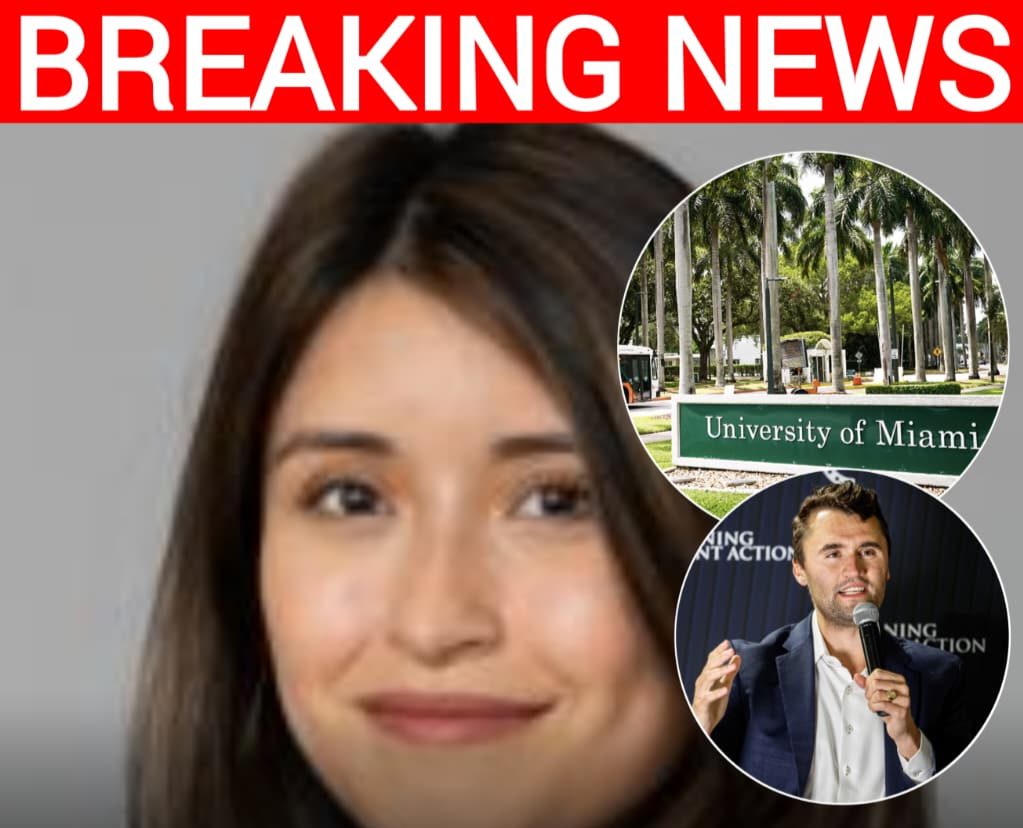University of Miami Fires Michelle Bravo After Justifying Charlie Kirk’s Death Sparks Outrage
The University of Miami has taken swift and decisive action after one of its professors, Michelle Bravo, made controversial remarks about the assassination of Charlie Kirk. The decision to fire her came after her comments began circulating online, sparking outrage from students, parents, and the wider community. For many, it was a moment that showed just how serious institutions are becoming when it comes to holding staff accountable for words that go beyond the limits of respectful dialogue.

Bravo’s remarks were seen as justifying the killing of Kirk, a young conservative activist whose death has already shaken the country. The news of her firing spread quickly across social media, with many calling it the right move, saying that no university should employ someone who condones or excuses violence in any way. For a school as prominent as the University of Miami, the decision also reflects the pressure it faces to uphold both its reputation and its responsibility to students who expect a safe and respectful environment.

For critics, this situation highlights a broader cultural problem in which political divisions spill over into classrooms, workplaces, and public discourse. When someone in a position of authority uses their platform to appear to endorse or excuse violence, it sends a message that can harm trust, divide communities, and create hostility. The firing of Bravo was not just about one person’s words, but about drawing a clear line that certain behavior is incompatible with the values of an educational institution.
At the same time, the university’s move has sparked conversations about the boundaries of free speech and accountability. Supporters of Bravo might argue that academic freedom allows professors to speak their minds, even when their opinions are unpopular. But the counterpoint, which ultimately carried the day, is that freedom of speech does not mean freedom from consequences, especially when the speech involves justifying the loss of life. Institutions like the University of Miami are increasingly being judged not only on the quality of education they provide, but on the culture and values they stand for.
What remains undeniable is that the assassination of Charlie Kirk has sent shockwaves through nearly every corner of American society, from politics to universities to online communities. Each new development, whether it is the FBI’s ongoing investigation or the response from schools and workplaces, seems to underline how much this tragedy has touched the nation. For Kirk’s supporters, the firing of Michelle Bravo feels like a moment of justice, a sign that words matter and that celebrating or justifying a death cannot be brushed aside as casual commentary.
This story continues to evolve, but the University of Miami’s action will likely be remembered as part of a larger turning point. It reflects a cultural moment where institutions are being pushed to take stronger stances, where consequences are being demanded more quickly, and where lines are being drawn between what is protected opinion and what crosses into unacceptable territory. For many Americans, the message is clear: words carry weight, and when those words celebrate tragedy, there will be a price to pay.



